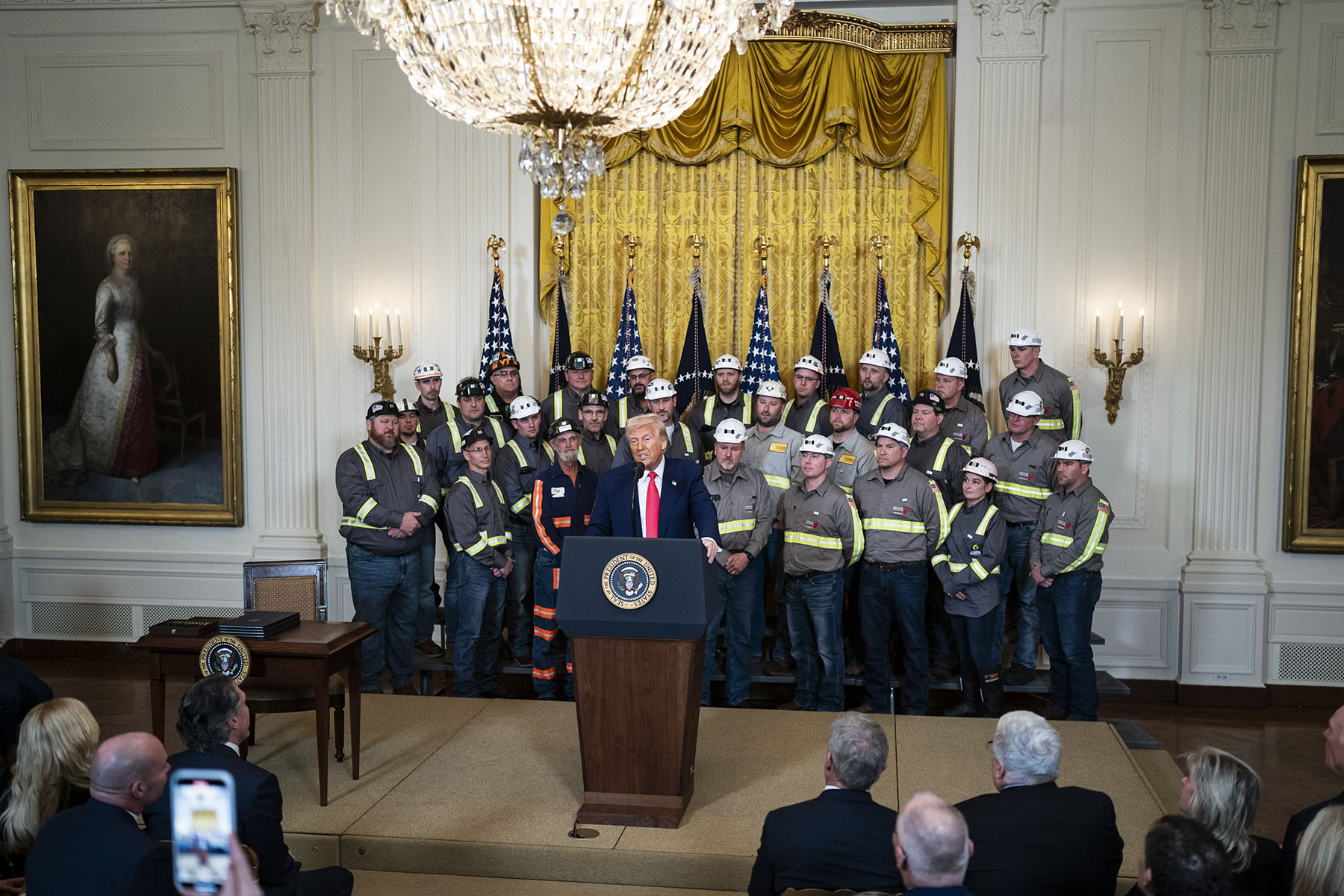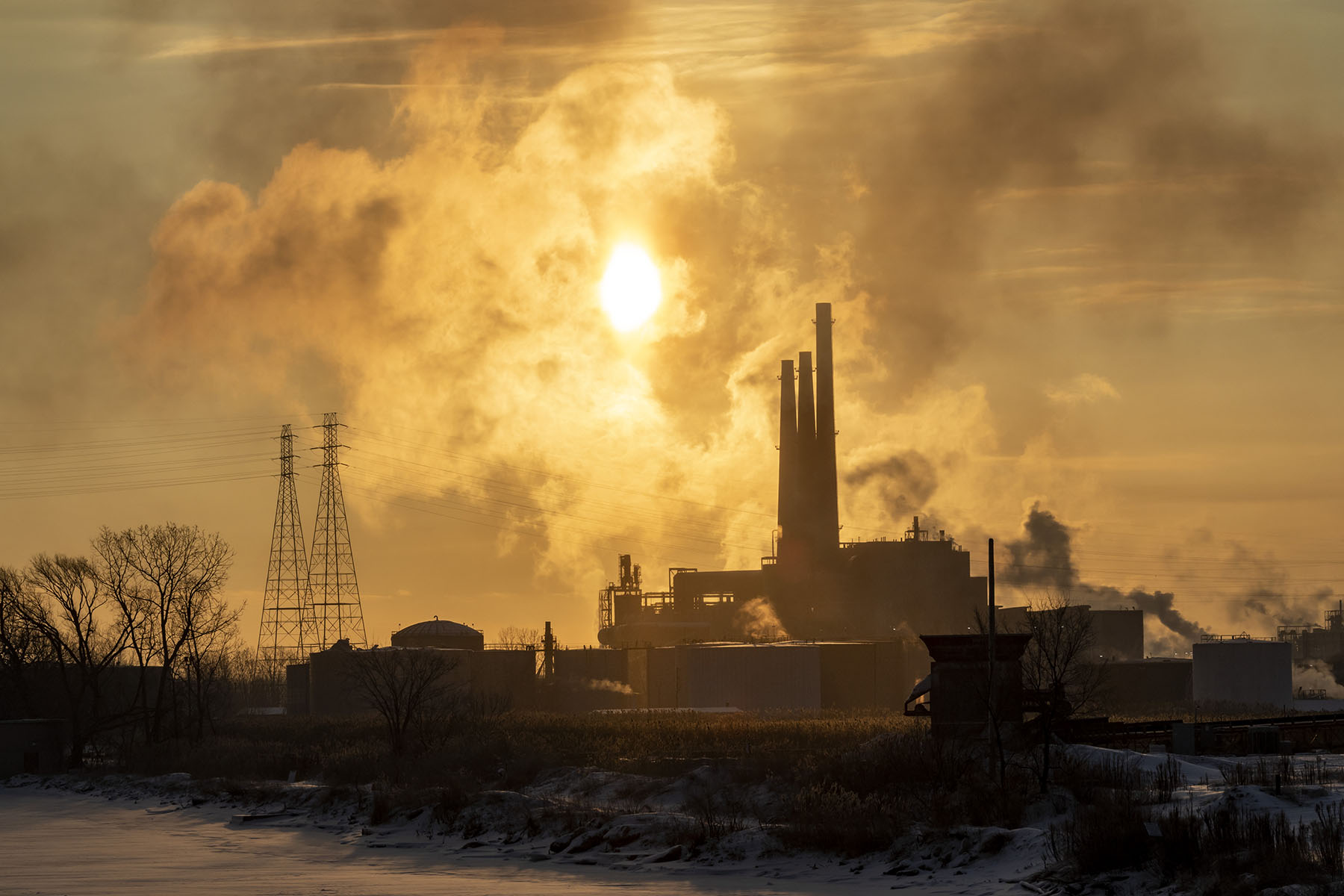The Trump administration signed executive orders Tuesday aimed at reviving the coal industry by directing agencies to identify existing sources and lift barriers to coal mining on public land. But what President Donald Trump called “beautiful clean coal” in his orders is a polluting energy source that studies show harms pregnant people and has been linked to premature births.
In 2018, researchers in California published a study that found that after coal and oil-fired power plants closed, preterm births, a leading cause of infant mortality, dropped by about 25 percent in surrounding neighborhoods. That study contributed to a body of other research that showed a relationship between poor air quality and adverse pregnancy outcomes.
Under the Biden administration, the falling cost of renewables, the uptick in natural gas production and stricter regulations on coal-fired power plants all contributed to the industry’s steady decline. But now a new push to bring back coal and recent actions by Environmental Protection Agency Administrator Lee Zeldin to potentially overturn regulations in the name of “unleashing American energy” could slow that trend, leaving plants operating longer than planned and with dirtier emissions.
Joan Casey, an associate professor at the University of Washington and author of the 2018 study, is one of many experts worried about the impacts these regulatory rollbacks could have on public health and pregnancy, in particular.
“We don’t like to go backwards in public health when we’ve worked hard to improve the environment for all Americans,” she said.
The administration announced on Tuesday exemptions from the latest Mercury and Air Toxic Standard, which was updated in 2024 and strengthened limits on mercury and other toxic pollutants. In addition, the EPA is targeting other regulations on power plants and their emissions, as well those focused on reducing air pollution from vehicles, among others.

The standard limited the amount of mercury that could be emitted from certain types of power plants. During Trump’s first term, the EPA stopped enforcing the rule altogether.
Coal-fired plants are some of the largest emitters of mercury in the country, which travels in the air and ends up in rivers and streams, where it can contaminate fish, and, subsequently, humans.
Without this standard, more pollution will be in the air, which can impact maternal health risks and birth outcomes.
“Particulate pollution, when it gets into a woman’s body during pregnancy, increases her risk of heart disease and stroke [and] it increases risk of stillbirth and low birth weight,” said Philip Landrigan, a pediatrician and director of the Program for Global Public Health at Boston College. Mercury, when ingested, can cross the placenta and affect the development of a fetus, he added.
Zeldin is also assessing a regulation that would reverse an air quality standard for PM 2.5, or particulate matter, which comes from a range of sources like coal burning, gas and vehicle emissions. PM 2.5 is small enough that it can enter the lungs and damage organs, and is linked to premature deaths and asthma. Under the Biden administration, the amount of particulate matter that states were supposed to limit was reduced from 12 micrograms down to 9 after EPA experts evaluated the latest science over how much exposure was acceptable for human health.
Landrigan said the administration will likely revert back to the previous limit, “Which means that the air would become 25 percent more polluted,” he said.
Several studies have linked exposure of PM 2.5 to higher risk of a host of pregnancy complications including preeclampsia, a potentially fatal high blood pressure condition, and gestational diabetes. Adverse birth outcomes included a higher risk of low birth weight, preterm birth, stillbirth and congenital heart defects.
Pregnant people and small children are more susceptible to air pollution than the general public because of the amount of oxygen they breathe. In pregnancy, a person increases their intake of oxygen by 40 percent to accommodate a growing fetus, exposing them to more pollutants in the air. Young children also breathe about four times more air than adults, Landrigan said.
Landrigan acknowledges that the country has come a long way in regulating emissions, with air pollution dropping 89 percent over a period of 60 years, but he’s seen how even short-term regulation changes can be deadly. When he researched the impact environmental rollbacks had during the first Trump administration, his team was able to attribute 20,000 unnecessary deaths to a rise in air pollution, with higher mortality rates in Southern states like Mississippi, West Virginia and Alabama, where polluting industries are disproportionately located and there is a weaker public health infrastructure.
In addition to more emissions from coal, Tracey Woodruff, director of the Program on Reproductive Health and the Environment at the University of California San Francisco, worries that these communities will also face more exposure to toxic chemicals. Already, the EPA is pausing the implementation of a rule that would have banned trichloroethylene, a chemical linked to low birth weight and birth defects. Hundreds of chemical manufacturers are also seeking a two-year exemption from various EPA regulations aimed at protecting public health.
At a time when Republicans have been animated by the Make America Healthy Again movement, which is focused on removing chemicals and additives in the foods we eat, these actions feel counterintuitive to Woodruff.
“The Make America Healthy Again movement is about getting rid of toxic chemicals in people’s lives,” she said. “EPA will create the opposite effect.”
Both in the South and across the country, low-income communities of color face more exposure to toxic chemical pollution, and many studies show they suffer more from adverse pregnancy outcomes as a result. In Louisiana’s “cancer alley,” where over 200 petrochemical plants and refineries are concentrated in predominantly Black communities, a study last year found that around a third of the state’s cases of low birth weight and about half of the cases of preterm births each year could be linked to air pollution exposure.
These communities are even more in danger now, not just because of the potential rollbacks, but because they are also reeling from the Trump administration’s closure of the environmental justice office at the EPA and reduction in any sort of federal support to address these issues.
“All of those things have an impact on reproductive health,” said Regina Davis Moss, president and CEO of In Our Own Voice. “It’s directly related to environmental justice, which is saying everyone should have the right to raise their children in a safe and sustainable community.”
Apart from these shorter term impacts, Casey is also worried about the worsening of the climate crisis due to some of these potential regulatory changes.
“That will affect the health of pregnant people throughout the century and beyond,” she said. “We’re making choices for our grandchildren’s pregnancies right now.”
Correction: An earlier version of this article incorrectly identified Philip Landrigan's employer.







